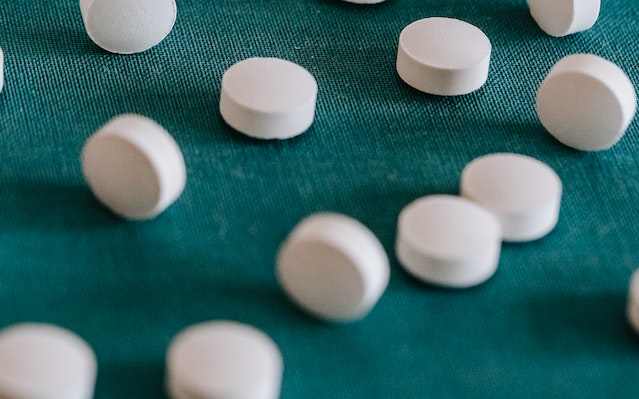The mifepristone saga is entering its next chapter.
On August 16, 2023, the U.S. Court of Appeals for the Fifth Court for the Northern District of Texas ruled to uphold the legality of mifepristone, but with significant restrictions. This action moves the case one step closer to the Supreme Court.
As Bio.News has reported, mifepristone is “a drug approved by the U.S. Food and Drug Administration (FDA) in 2000 that has been on the market for over 20 years.” Mifepristone has been deemed safe despite claims of harm by the groups that brought forth the case in April 2023—even though none of the plaintiffs claim to have used and, therefore, been harmed by the drug.
Furthermore, the case has posed considerable problems when it comes to patient access (and safety), as “an unprecedented attempt at undermining the FDA approval process.”
As Biotechnology Innovation Organization (BIO) CEO Rachel King explained after the original ruling in April, “The preliminary ruling by a federal judge in Texas is an assault on science and the FDA’s long-standing role as the authority to make decisions on the safety and efficacy of medicines. For a court to invalidate the approval of a drug that was reviewed and approved more than two decades ago is without precedent. As legal scholars have noted, the courts do not have the medical expertise to make these types of scientific determinations.”
Appeals court ruling would restrict access to mifepristone
In April, there was considerable concern that a legacy drug was going to immediately be pulled from the market without legitimate cause—endangering both patients and the very foundation of the drug development pipeline.
“There are hundreds of medical studies to determine the risks associated with mifepristone,” BIO’s Chief Policy Officer, John Murphy, explained in April, “and they’ve found that the risks are not any more profound than many other drugs that are currently on the market.”
“There are Attorneys Generals across the country that are saying that this drug is so safe that you shouldn’t even have a pharmacist certification before dispensing it, and FDA equivocates have said that as well,” continued Murphy.
The Justice Department appealed the Texas ruling just a few days later, arguing the challengers had no right to file the lawsuit since they were not personally harmed by the abortion pill. This kept mifepristone (as well as its generic counterparts) on the market for the time being.
The ruling this week aims to chip away at access to mifepristone by prohibiting the drug from being sent through the mail or prescribed through telemedicine. However, for now, at least, the ruling will have no real-world effect since the Supreme Court said mifepristone has to remain available under the current rules until the appeals process concludes.
Patients, doctors, activists, experts, and legal scholars are watching the next steps by the Supreme Court. Currently, the case could take one of two paths in the coming months. The Supreme Court could deny review, which would activate the current ruling of restricted access. Or, the Supreme Court could agree to hear the case.
What to know right now about the mifepristone case
As this case makes its way through the judiciary, there are some key things to remember.
First, judicial review of the FDA’s authority is not only anti-science, it is dangerous to the foundation of America’s biotech industry.
“FDA has a long history of understanding and tracking adverse events and articulating iterative labeling requirements based on what they’re seeing in real-world evidence and what they’re seeing in subsequent studies,” Murphy previously told Bio.News. “You have to look at FDA as the expert when it comes to working with companies and working with the physician community to evaluate on an ongoing basis the effectiveness of a product and balance it with its risks, because all drugs in some way or fashion have risks.”
“Big determination of medical questions are ones that the medical community should be making,” continued Murphy, “and what judges should be doing is making sure that FDA followed the statutory process in getting to its ultimate professional medical decisions. It should be making sure that its regulations speak with clarity, and there isn’t ambiguity in how it is making decisions.”
Second, the Texas ruling did not necessarily ensure patient safety. As Bio.News explained in April, the judge in the original ruling seems to prioritize one type of safety over another. The original Texas ruling outlines the risks the judge believes exist in keeping the product on the market, but ignores any potential risks that could happen by taking a product off the market, Murphy explained. ‘This is why many judges grant interim relief to keep the status quo while litigation continues.’”
Third, the effects of a ruling against the scientific authority of the FDA could have profound consequences on the biotech industry—and the American economy as a whole.
As Bio.News has reported time and time again, investing in drug development is one of the most time-consuming and risky investments that can be made today: “The U.S. biotech industry directly employs some 2.5 million people, and a little more than 10 million indirectly, with $2-3 trillion in economic impact. This multi-trillion-dollar contribution to American innovation relies on strong and stable regulatory and distribution systems.”
As such, the industry believes the current FDA authority needs to not only be maintained but also protected. “Mifepristone has been on the market for 23 years, and it is a chilling notion for the industry that you could have a judge say we’re going to have a fact-finding mission for this established drug, and while we do that, we’re going to deny all access to the product,” said Murphy. “I think that’s a problem.”
More than 400 biotech CEOs filed an amicus brief urging suspension of the Texas ruling (joined by BIO).
“Here at BIO, we stand with a strong FDA, and we stand with patients,” said BIO’s CEO Rachel King.




